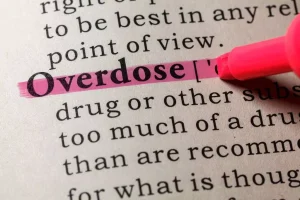
Post Traumatic Stress Disorder (PTSD) affects nearly 8 percent of all American’s during their lifetime. Finding an affordable, safe, and reliable treatment for PTSD would profoundly impact the lives of millions of Americans every year. Researchers are still trying to figure out the exact mechanisms behind neurodegenerative diseases like Alzheimer’s. We know it has to do with a protein pathway, and that’s exactly the pathway this 2006 study investigates. We won’t bog you down with the technical minutiae of each of those changes. Instead, here’s a quick overview of the major studies and most promising findings about the medical importance of CBD.
Does CBD Work for COPD?
However, these methods of use link to more severe side effects and long-term complications, including lung injury. It may also affect peroxisome proliferator-activated receptors’ gamma activity. This activity affects intracellular calcium release, which is responsible for processes such as muscle contraction, hormone secretion, and cell growth.

How to Determine Whether CBD Oil is Right for You
Until more research is conducted, it is important to use cannabinoids only as instructed by your healthcare provider to prevent long-term complications. Depending on the specific cannabinoid and its concentration, cannabinoids can produce a wide range of effects, including pain relief, relaxation, appetite stimulation, and mood changes. Beyond THC, CBD, and CBN, researchers are exploring the potential of other cannabinoids to better understand their varying effects on health and well-being.

Health Risks
- One 2019 review found that CBD might help slow the onset and progress of Alzheimer’s disease.
- A similar intermediate activity was reported in subjects with established psychosis during a memory task (O’Neill et al., 2020).
- More research is needed to better understand the therapeutic potential of CBN.
- While research is ongoing, some studies show a positive correlation between taking CBD oil and improved anxiety and depression symptoms, improved ALS symptoms and reduced levels of chronic pain, among other health conditions.
For context, one study indicated that a 160mg dose of CBD correlated with longer sleep duration, while 25mg of CBD seemed to have no effect on insomnia symptoms. Not only can cannabis help supplement and replace a regimen of opioid painkillers, cannabis appears to enhance the effects of opioids, allowing some patients to cut back their regular dose of pharmaceutical painkillers. For quick relief of acute stress and anxiety, consider vaporizing high-CBD strains that also contain an array of botanical compounds—or try a clean, lab-tested CBD oil. Ingesting CBD oil may also help alleviate anxiety on the fly, but the effects are not instantaneous.

CBD might help treat anxiety disorders, although there have not been many trials to look at CBD’s anxiety-relieving effects in humans. CBD use should be individualized and vetted by a healthcare professional, such as a pharmacist or healthcare provider. OTC CBD oil products are not intended to treat, cure, or prevent disease.
Unlike THC, the cannabinoid with the legendary power of producing euphoric sensations, Cannabidiol is inert. Perhaps the only thing more complex than the biochemistry of cannabis is its pharmacology. The ways weed interacts with the human body are exceedingly intricate. And the truth is we don’t know as much as we should about those interactions—at least not yet.
Numerous studies have looked at the effect of CBD on Alzheimer’s disease. These rare forms of epilepsy involve seizures that are difficult to control with other types of medication. A 2018 study found that CBD helped reduce cravings during withdrawal from tobacco because of its is cannabidiol addictive relaxing effect. This article will look at what CBD is, how it might benefit a person’s health, how to use it, any possible risks, and its legal status in the United States. There is significant variability among the products you’ll find at dispensaries, smoke shops, or online.
- To determine if CBD oil is right for you, speak with a health care provider about your unique health history, goals and needs..
- Unlike THC, the cannabinoid with the legendary power of producing euphoric sensations, Cannabidiol is inert.
- CBD gummies and other edibles are the most popular way to take CBD, according to a 2023 Healthline survey of 1,044 U.S. adults who currently use, have used, or would be interested in trying CBD products.
- These claims often begin with anecdotal evidence, early research, and animal studies, but human studies are finally starting to fill in the gaps around CBD’s touted benefits.
- Overall, participants had 36.5 percent fewer seizures per month.
2015 saw the most important study to uncover the pain-relieving effects of CBD. The demand for medical-grade cannabidiol has spurred breeders and growers to pursue new strain genetics that promote cannabidiol production. Instead, they increase the ratio of CBD to THC, allowing the effects of cannabidiol to shine through. And the buds of the cannabis plant have a richer and wider complement of cannabinoids compared to hemp leaves.

TSC is a rare genetic disease that causes benign tumors to grow in the brain and other body areas. The Farm Bill removed all hemp-derived products, including CBD, from the Controlled Substances Act, which criminalizes the possession of drugs. In essence, this means that CBD is legal if it comes from hemp, but not if it comes from cannabis (marijuana) — even though it is the exact same molecule. Currently, many people obtain CBD online without a medical marijuana license, which is legal in most states. During an emotional processing task, CBD and THC had opposite effects relative to placebo in the left amygdala, fusiform, and lingual gyri, the lateral prefrontal cortex and the cerebellum (Bhattacharyya et al., 2010).
Supports Brain and Nerve Conditions
People who use CBD oil should speak with a doctor to ensure the drug is safe and whether CBD is more effective than other conventional medications. In some studies, certain cannabinoids demonstrate anti-inflammatory, anti-itch, anti-aging, and anticancer properties. Some experts suggest that these effects occur when the drug interacts with the endocannabinoid system found on the skin. It might also boost levels of naturally occurring endocannabinoids, which may explain its seemingly broad range of uses. Specifically, cannabidiol binds with the endocannabinoid system to produce a response that reduces nerve inflammation. This is another of its “neuroprotective” qualities and a major reason why CBD is such an effective treatment for neurological diseases.